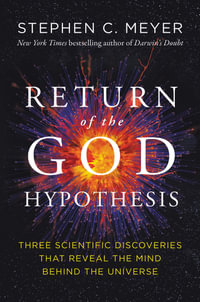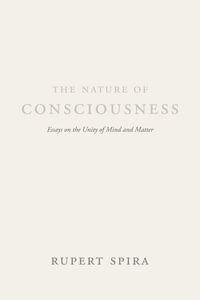Why the social character of scientific knowledge is the reason why we can trust it
Do doctors really know what they are talking about when they tell us vaccines are safe? Should we take climate experts at their word when they warn us about the perils of global warming? Why should we trust science when our own politicians don't? In this landmark book, Naomi Oreskes offers a bold and compelling defense of science, revealing why the social character of scientific knowledge is its greatest strengthaEURO"and the greatest reason we can trust it.
Tracing the history and philosophy of science from the late nineteenth century to today, Oreskes explains that, contrary to popular belief, there is no single scientific method. Rather, the trustworthiness of scientific claims derives from the social process by which they are rigorously vetted. This process is not perfectaEURO"nothing ever is when humans are involvedaEURO"but she draws vital lessons from cases where scientists got it wrong. Oreskes shows how consensus is a crucial indicator of when a scientific matter has been settled, and when the knowledge produced is likely to be trustworthy.
Based on the Tanner Lectures on Human Values at Princeton University, this timely and provocative book features critical responses by climate experts Ottmar Edenhofer and Martin Kowarsch, political scientist Jon Krosnick, philosopher of science Marc Lange, and science historian Susan Lindee, as well as a foreword by political theorist Stephen Macedo.
Industry Reviews
"For both its evidence-based rigor and striking honesty, Why Trust Science? by Naomi Oreskes should be required reading for everyone in scholarly communications. Addressing the broadest view of science possible - from the experimental to the historical - this book offers crisp, accessible writing and draws important connections to our world of research dissemination and publishing."---Lettie Conrad, The Scholarly Kitchen
"Oreskes' definition of science provides us with the best knowledge we can philosophically hope to get."---Ed Gibney, The Philosopher
"Why Trust Science? is an incredibly important work, bringing the history of science into something of a thinker's field guide to the pursuit of knowledge. It is sharply written and, beyond being merely informative, it is sage. Wherever the reader stands on the for or against science divide, Oreskes' determined and open-minded curiosity is infectious, as is her earned belief in science. Hopefully, it will encourage more scientists and science-lovers to spread the good word."---Katherine Oktober Matthews, Riding the Dragon
"One of FiveBooks' Best Climate Books of 2019"
"[A] fascinating new book . . . in a field with few reasons to be cheerful, it is both enlightening and encouraging. Once we begin to understand the size of the chasm that separates science's outsiders and insiders, as Oreskes clearly does, we can at least start to design a bridge."---Michael Brooks, New Scientist
"Oreskes is eloquent, insightful and bold. At a time where we are still confronted by climate change deniers and the anti-vaccine movement . . . it is easy to see why a book like this is so important. . . . This thought-provoking, timely and comprehensive book is a must-read."---Joanna Florence Sparks, Chemistry World
"A compelling argument in favour of experts."---Hettie O'Brien, New Statesman
"Oreskes joins a distinguished line of thinkers who explain why we should trust the findings of the scientific community . . . [and] clearly reminds readers that science has consistently brought home the bacon." * Kirkus Reviews *
"The decline of trust in science is one aspect of a much wider social issue, and the author gives a detailed survey of various perspectives from history and philosophy of science including many of the best-known names in the field."---David Lorimer, Paradigm Explorer
"Naomi Oreskes challenges easy answers." * New Scientist *
"New Zealand Listener's Best Book of 2019"
"A fascinating and accessible read that considers numerous domains and issues to bring the reader to Oreskes' ultimate point, that trustworthy science depends on consensus, diversity, and methodological openness and flexibility."---Jeff Share, Journal of Sustainability Education
"Two features of science, [Oreskes] claims, account for its trustworthiness: its 'sustained engagement with the world' together with 'its social character.' Her emphasis on the second feature may surprise readers used to thinking of science as a tidy epistemic enterprise neatly insulated from social influence, but this view emerges clearly from her sober review of studies of science by historians, philosophers, sociologists, and anthropologists during the past half century."---Philip Kitcher, Boston Review
"Why Trust Science? is an optimistic analysis of the opportunities that exist for enhancing public trust in science. This book should be mandatory reading for anyone who is part of the scientific endeavor."---Elisabeth Gilmore, Science
"A marvellous, up to date, thorough historical survey of science and its processes."---John R. Helliwell, Journal of Applied Crystallography
























